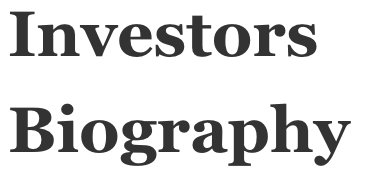Like many of today’s most impassioned and successful entrepreneurs, Gary Vaynerchuk was not born into privilege. Immigrating with his family to the United States from Belarus at three years old, “GaryVee” spent the early years of his life living in a studio apartment in Queens, New York, with eight other family members.
Showing an affinity for entrepreneurship early in life, Vaynerchuk successfully made tens of thousands of dollars in high school selling baseball cards. He later made his first big mark in the business world when he turned his father’s liquor store into one of America’s first-ever e-commerce platforms for alcohol under the name “Wine Library.”
Today, Gary Vee is the CEO of the full-service digital agency VaynerMedia and the author of five New York Times best-selling books. Still, he is arguably best recognized for his powerful social media presence, characteristic personal flair, and straightforward advice for aspiring entrepreneurs.
Listed below are some of the best pieces of advice that Vaynerchuk has to offer those who are considering a life of entrepreneurship.
Don’t do things just because your hero did them.
To truly be successful in entrepreneurship, self-awareness is crucial. According to Vaynerchuk, “self-awareness isn’t only just betting on your strengths, it’s accepting all your shortcomings…being at peace with yourself and your skill set.”
It’s good to be inspired and motivated by the work of an entrepreneurial hero, but attempting to follow the same path out of admiration isn’t likely to lead to success in business. Vaynerchuk is a strong advocate for entrepreneurs taking an honest look at their personal talents and choosing to apply those skills in an optimal way, rather than pursuing a professional path purely because they want to emulate a successful celebrity entrepreneur.
Overnight success isn’t real.
In the last decade, the life of an entrepreneur has developed a certain cultural allure. It has many young people choosing to forgo education in favor of founding their own businesses. Vaynerchuk notes that this trend is heavily influenced by social media and reality TV.
Accordingly, the general idea of what entrepreneurship is and what it takes to succeed is deceiving. In an interview with Entrepreneur, Vaynerchuk noted that “starting a company has become standard, and I think that is insane and scary. It’s like going to the NBA is standard.”
In reality, becoming a successful entrepreneur requires a level of skill, dedication, and grit that most people are not born with. Vaynerchuk recommends that people who are truly interested in a life of entrepreneurship focus on spending their 20s and early 30s building a foundation that will equip them with knowledge and skills that can act as a support during the difficult times of building a business.
This can include taking classes in new, cutting-edge subjects or spending time developing skills that could be useful in the future. By developing a non-traditional professional background and a diverse set of skills, aspiring entrepreneurs can work for the kind of companies they want to build. Then, they can set out on their own armed with knowledge and experience.
Finding work-life balance as a passionate entrepreneur is an uphill battle—but you have to make it happen.
If you’re doing entrepreneurship right, you’re going to have passion for what you do. Passion, as Vaynerchuk likes to say, is priceless. It can help fuel you to work much harder for much longer than you otherwise would. But passion and drive at this level can come at a price—one that Vaynerchuk warns can take over an entrepreneur’s life if he or she isn’t careful.
To delineate the world of entrepreneurship from time with family, Vaynerchuk recommends two things. First, setting strict boundaries to keep the two worlds separate. Second, acknowledging that balancing the two worlds will be a constant struggle.
It’s important that new entrepreneurs surround themselves with people who are supportive of their professional goals and who believe in their vision. It’s similarly important that entrepreneurs not take these people for granted. As much as possible, try to establish strictly-observed downtime with family— without engaging in work.
There will likely be times where a meeting or a deadline can’t wait. However, it’s important for entrepreneurs to hold themselves accountable for the rules they set to separate home and work life. Overall, Vaynerchuk acknowledges that work-life balance is “a very personal thing for all of us.” Entrepreneurs should establish well-thought-out rules that work best for their particular situation.
What other people think about your professional path doesn’t matter.
We often rely on the opinions of friends or family when making a big decision. Unfortunately, in some cases, especially life-changing decisions like deciding to pursue entrepreneurship, the feedback we get from the people who matter to us the most isn’t exactly what we want to hear.
Our friends, loved ones, and even our casual acquaintances may discourage us from taking a risk like entrepreneurship. To be successful in this field, one must understand the importance of letting go of caring about what other people think.
Vaynerchuk notes on his personal blog that “no one has 100% context on your life outside of you.” A lack of support for your entrepreneurial dreams from a parent or friend may come from a place of fear or insecurity.
It can be well-meaning, and Vaynerchuk recommends having empathy for the opinions of the people we love. However, he also is resolute in his belief that a successful entrepreneur cannot take those opinions to heart.
Above all, Vaynerchuk emphasizes the importance of living your life in accordance with your own dreams, in a way that prevents the kind of regret that sets in during old age after a life lived based on what other people thought was best for you. To support yourself when you feel afraid, he says “be your own biggest fan, instead of critiquing every move you make.”

